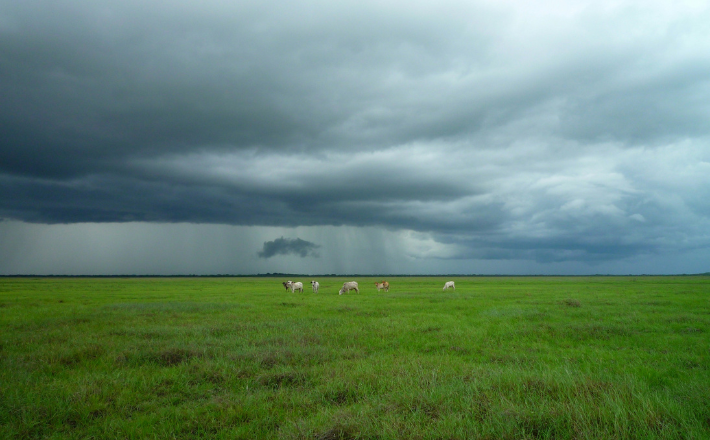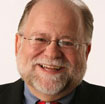Commentary on Psalm 82:1-8
Psalm 81 is a hymn with a prophetic warning pleading for faithfulness from the covenant community. It is not surprising, then, that Psalm 82 also emphasizes a prophetic warning. At the same time, Psalm 82 creates a very different setting, one quite unfamiliar to contemporary readers/hearers. The setting is a council of gods, with the chief God addressing the members of the council in a prophetic tone.
Most contemporary readers/hearers of the Psalter will be monotheists, but in the ancient world, awareness of a variety of gods engaged with the world would be a common image. Texts such as Exodus 20:3–6 and Joshua 24:14–15 urge faithfulness to the covenant God YHWH in a setting that includes the reality of other deities. The prophets frequently called the covenant community to faithfulness toward YHWH rather than other gods (Jeremiah 8:19; Hosea 11:2). Some interpreters have characterized these divine beings as angels or even “godlets.” The deities participated in an assembly, and the Old Testament also refers to this divine council in several places; ancient Israelites would have been familiar with the image (1 Kings 22:19–23; Job 1:6–12; Jeremiah 23:18–22; Zechariah 1:7–17).
The high God YHWH in Psalm 82 speaks to the gathered members of the divine council and speaks prophetic words of judgment. The clear claim at the heart of this unusual poem is that YHWH is the chief of all divine beings, and YHWH, in this Psalm of Asaph, speaks judgment to the members of the divine council in this imagined courtroom scene. It is the setting of the psalm that is so odd to many contemporary readers/hearers who adhere to traditional Christian theology.
A Psalm in three parts
- The setting of the council (verse 1)
The first verse presents the setting of the divine council. The background above will provide some helpful information. This setting is a scene unfamiliar to most readers/hearers. A literal translation at the end of the first line is “the assembly of El.” El is the high god of this Canaanite assembly in ancient Near Eastern religion. The Hebrew divine name YHWH does not appear in this psalm, likely because the text is part of the Elohistic Psalter (Psalms 42–83) that emphasizes the more generic divine name Elohim. El is at times used to refer to YHWH (Psalm 19:1). El, as creator, is head of the divine council and here stands in the midst of the council to evaluate the gods. The question is the task of these members of the divine council and whether they are faithful to the task.
- Judgment of the other gods (verses 2–7)
Verses 2–4 articulate the task of the lesser gods, along with questions that accuse. These gods have unjustly favored the wicked, who appear to be the powerful and wealthy. The high God does not wait for answers but articulates the tasks of these gods—to bring justice to those who are vulnerable, lowly, poor, weak, and needy. The widow and orphan present the prime examples of those who are in need in the Old Testament. These are the ones who need justice, deliverance, and support in the face of the wicked. Such needs are central to ancient Israel’s life and faith.
Care for the vulnerable is the central task of the Divine. Verse 5 pronounces a quick and powerful verdict on the lesser gods, a verdict of no knowledge and no understanding that have brought destabilization and darkness in the world. Therefore, these gods have failed and are sentenced to a human death. That understanding of “they” in verse 5 is the most likely reading, but it is possible that “they” in verse 5 is the people who reflect the failed actions of the gods. Verse 7 concludes a verdict of “guilty,” and that is likely toward the lesser gods. This gathering of the divine council has revealed these gods as false and oppressive idols.
- A call to God (verse 8)
The concluding verse is a fervent plea from another voice, perhaps the people of the world whose lives the failure of the gods diminishes. The plea is that the creator and ruler of the world will rise up and bring justice to life.
Concluding reflections
First, the unusual setting of this psalm suggests that we think again about monotheism. Ancient Israel came to monotheism over time. Millions of people in our world worship gods other than YHWH. Perhaps a more cogent response to that reality, rather than shock or horror, would be to see that issue as a divine, rather than human, issue.
Second, the psalm makes it clear that support and justice for the vulnerable are central to the living of a faithful life on earth and in heaven. Care for those in need is at the heart of faith articulated in the Psalms, for all people in need, no matter what culture, race, creed, or location is theirs. Psalm 72, for example, defines the task of the Davidic king as justice for the vulnerable. The New Testament makes it clear that Jesus incarnates God in care for the vulnerable. Such is the church’s task.


August 17, 2025